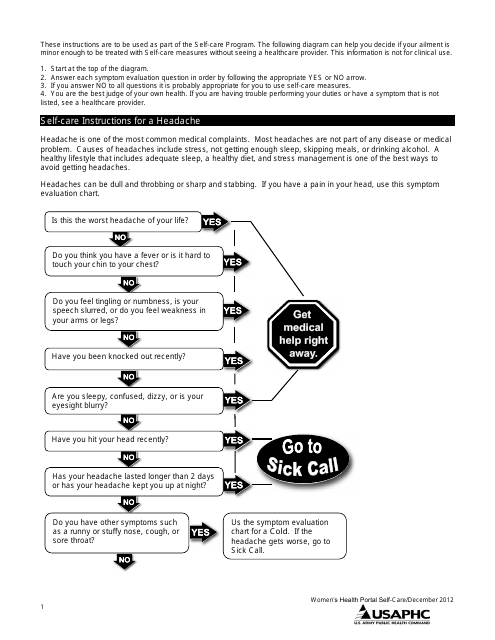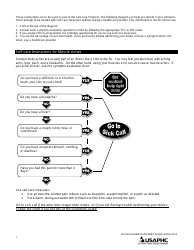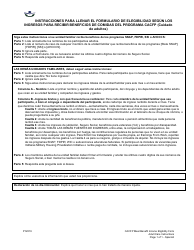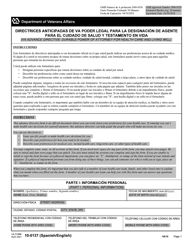Headache Self-care Chart
Headache Self-care Chart is a 2-page legal document that was released by the U.S. Army - Defense Centers for Public Health-Aberdeen on December 1, 2012 and used nation-wide.
FAQ
Q: What are some self-care strategies for managing headaches?
A: Some self-care strategies for managing headaches include getting enough rest, applying a cold or warm compress to the head, practicing relaxation techniques like deep breathing or meditation, staying hydrated, and avoiding triggers like certain foods or activities.
Q: When should I seek medical help for a headache?
A: You should seek medical help for a headache if it is severe and sudden, if it is accompanied by other concerning symptoms like fever, confusion, or difficulty speaking, or if it is a new type of headache that you have never experienced before.
Q: What over-the-counter medications can I take for a headache?
A: Over-the-counter medications like acetaminophen (Tylenol), ibuprofen (Advil, Motrin), or aspirin can be taken for mild to moderate headaches. It is important to follow the recommended dosage instructions and consult with a healthcare professional if you have any medical conditions or are taking other medications.
Q: How long should a typical headache last?
A: A typical headache can last anywhere from a few hours to a couple of days. If your headache persists for longer than that or becomes more frequent or severe, it is advisable to seek medical attention.
Q: What are some common triggers for headaches?
A: Some common triggers for headaches include stress, lack of sleep, dehydration, certain foods and beverages (such as caffeine or alcohol), environmental factors (like bright lights or strong smells), hormonal changes, and physical tension.
Q: Can frequent headaches be a sign of a serious medical condition?
A: While most headaches are not a sign of a serious medical condition, frequent or severe headaches could be a symptom of an underlying health issue. It is recommended to consult with a healthcare professional if you experience persistent or worrisome headaches.
Q: Are there any lifestyle changes I can make to reduce the frequency of headaches?
A: Yes, adopting a healthy lifestyle can help reduce the frequency of headaches. This may include maintaining a regular sleep schedule, managing stress through relaxation techniques or counseling, staying hydrated, eating a balanced diet, and exercising regularly.
Q: Are there any alternative therapies or remedies for managing headaches?
A: Yes, some alternative therapies or remedies that may help manage headaches include acupuncture, aromatherapy, herbal supplements (like peppermint or lavender), biofeedback, and massage therapy. It is important to consult with a healthcare professional before trying any alternative treatments.
Q: Can children get headaches, and how can they be managed?
A: Yes, children can get headaches too. Headaches in children can be managed through many of the same self-care strategies as adults, such as getting enough rest, staying hydrated, avoiding triggers, and applying cold or warm compresses. It is advisable to consult with a pediatrician for proper diagnosis and management.
Q: When should I call 911 for a headache?
A: You should call 911 for a headache if it is the worst headache you've ever experienced, if it comes on suddenly and is accompanied by a stiff neck, confusion, seizures, or loss of consciousness, or if you have other symptoms like weakness or difficulty speaking.
Form Details:
- The latest edition currently provided by the U.S. Army - Defense Centers for Public Health-Aberdeen;
- Ready to use and print;
- Easy to customize;
- Compatible with most PDF-viewing applications;
- Fill out the form in our online filing application.
Download a printable version of the form by clicking the link below or browse more legal forms and templates provided by the issuing department.







